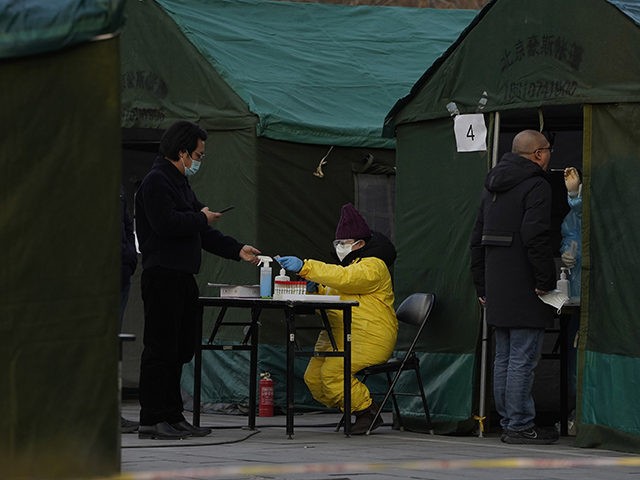The city of Beijing reportedly went into “emergency response mode” Saturday after the discovery of five new coronavirus cases in the northern Shunyi district, which is located near the Beijing International Capital Airport.
A sixth case is possible but not officially confirmed.
“There have been many sporadic outbreaks. The epidemic control situation is very severe. All districts, all agencies and units must enter a state of emergency response and fight… with more resolution and stricter rules to prevent the spread of the coronavirus,” a spokesman for the Beijing municipal government said on Sunday, as quoted by the South China Morning Post (SCMP).
Those emergency response measures purportedly included more stringent mask requirements, mass public testing for the coronavirus, travel restrictions, and quarantine of the areas where infections were reported. Over a million city residents were supposedly tested on Saturday alone. Some public attractions have been shut down or instructed to operate at reduced capacity until after New Year’s Day, and schools might be closed as well.
“Whoever organizes tours will be responsible for managing and implementing the epidemic control rules. Travel agencies need or control the size of group tours leaving and entering Beijing, carry out risk assessment and draft all emergency response protocols,” said an official from the city Bureau of Culture and Tourism.
Reuters noted Sunday was the fourth consecutive day of new virus reports in Beijing, including at least one person who traveled to another city and was diagnosed there.
“China has largely brought the coronavirus under control but sporadic cases are resurfacing in a small number of cities. Authorities plan to vaccinate 50 million people in high-risk groups before the week-long Lunar New Year holidays from Feb. 11,” Reuters wrote, quoting Chinese state media.
Beijing officials are asking residents to restrict travel and public gatherings until after Lunar New Year, a huge holiday in China that normally features extensive travel for vacations and family reunions.
The SCMP reported considerable unhappiness about “emergency response mode” restrictions among Beijing residents, especially those who cannot easily work from home. The pandemic made the already unbearable commuter situation in Beijing even worse, as well as increasing the difficulty of earning enough money to live in the expensive city. Many disgruntled residents noted that the latest wave of coronavirus infections included people who were making lengthy commutes on top of working grueling hours to make ends meet.
The Chinese Communist Party’s vast army of censors rapidly deleted many gripes online. The SCMP noted that one previously popular hashtag for complaining about the Beijing situation on Weibo, China’s version of Twitter, displayed absolutely zero posts on Monday.
Beijing, and other large Chinese cities, have reported a few previous coronavirus “surges” after China supposedly eradicated the Chinese coronavirus six months ago. An outbreak in June involving about a hundred cases produced comparable statements about emergency responses and “wartime” measures.

COMMENTS
Please let us know if you're having issues with commenting.